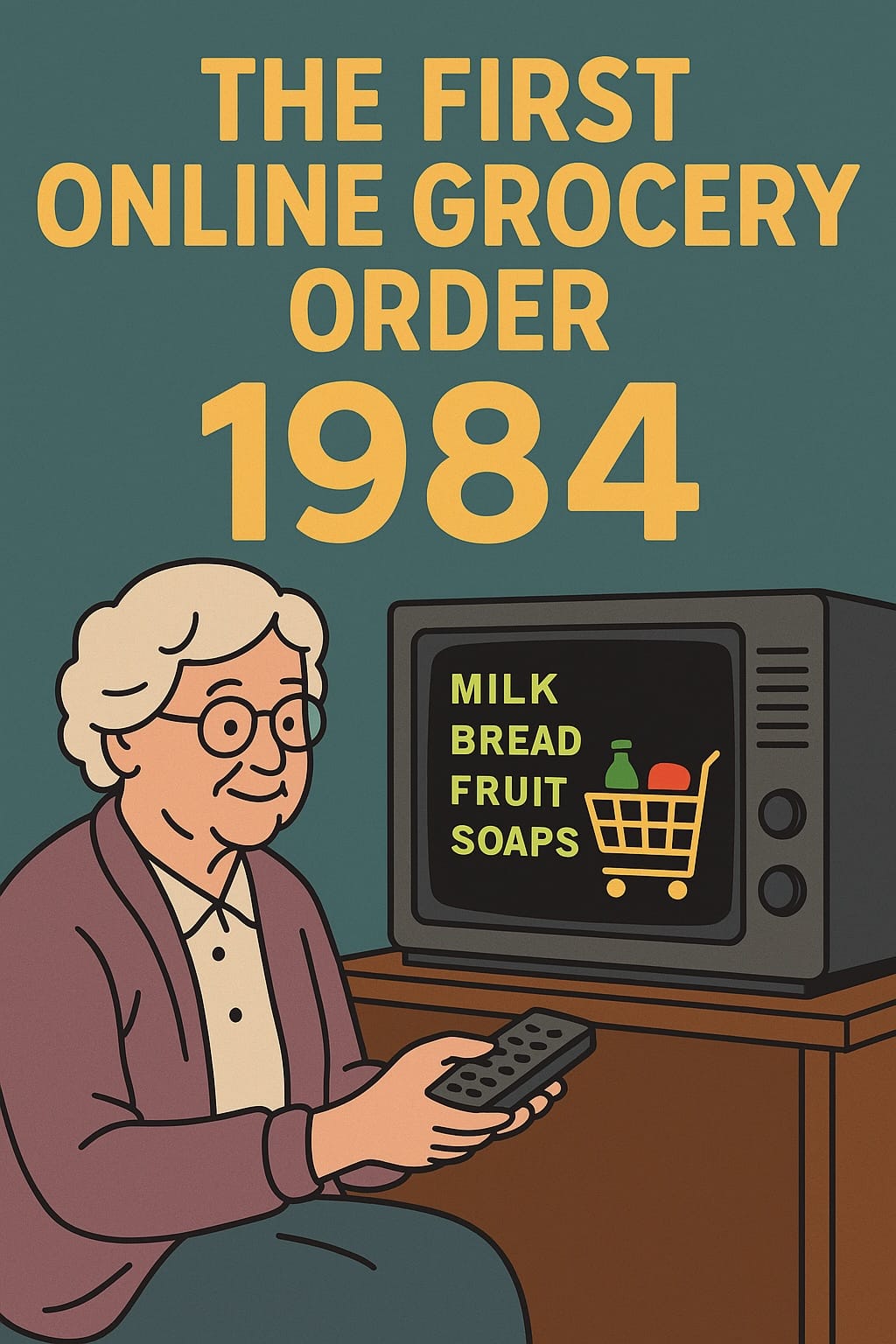The Agentic Shopping Wars
Online shopping agents may not be AI’s deepest impact, but our drive to buy online has pushed Google and Amazon toward $5T. AI agents could transform shopping, with huge consequences for winners and losers.

Here’s a bit of online trivia I’m ashamed to say I did not know until researching this post. The first online grocery order in the UK, and possibly globally, was placed in Gateshead in 1984. This was 5 years before the world wide web was even invented by Sir Tim Berners Lee, almost a decade before public availability of the fledgling internet and 15 years before online grocery shopping was widely available.
And the trivia gets better; that first online grocery order, fulfilled by her local Tescos, was placed by a 72 year old grandmother, Jane Snowball, as part of an accessibility initiative for infirm local people who were unable to visit the store.
The service used a Ceefax style teletext terminal , connected to the user’s TV and accessible through a more or less standard remote control.
So hurrah for this heart warming story of technology actually overcoming accessibility barriers rather than creating them.
And double hurrah for the nominative determinism of Granny Snowball, who was unwittingly the seed for a monumental avalanche of online consumer purchases - the most consequential shift in consumer purchasing behaviour since the invention of the credit card.
Wouldn’t it be delicious if the first recognisable use of an AI shopping Agent was by John Tsunami, another aptly named septuagenarian, known henceforth as Seismic John, the granddaddy of all tsunamis. In mid 2025 Open AI, Google, Amazon and dozens of other players have launched their first shopping agents in a race to ride the potentially massive tidal wave of consumer change agentic technology could unleash.
Although these shopping agents are barely more than neonatal, we are at the beginning of a massive turf war between the tech giants, and we are already seeing strategic positioning. Amazon very recently banned purchasing by Google’s AI shopping Agent. This is while Amazon are already trialling their own agent, Buy For Me to help Amazon’s own customers buy a product on other sites in the unlikely event it is not one of the mere 350 million distinct products available on Amazon’s own platform.
AI may have many consequences more profound than how we buy stuff we often don’t even need. But powerful AI agents will upend ownership of the whole shopping experience from product selection to price discovery to transaction completion to actual order delivery. Whoever owns the shopping experience can capture the enormous advertising revenues that sustain Google and Amazon – not to mention taking a slice of the sale price, offering lucrative financing options and even promoting their own brand products’.
My hope in 2000 that Tescos new online shopping would be easier than physical self-serve aisles evaporated when I actually tried to use the website. Although my excitement was rekindled a year later by a completely separate and genuinely accessible Tesco website, that site only survived 5 years, presumably due to the costs and challenges of maintaining 2 entirely separate websites. So here we are 20 years later and I’m still hoping for a shopping experience to rival the 1960s. I used to simply hand Mr Grits The Grocer. my shopping list, and he would return 5 minutes later with a personally filled eco-friendly paper bag, tuppence ha’penny change from half a crown and a free copy of last week’s Beano.